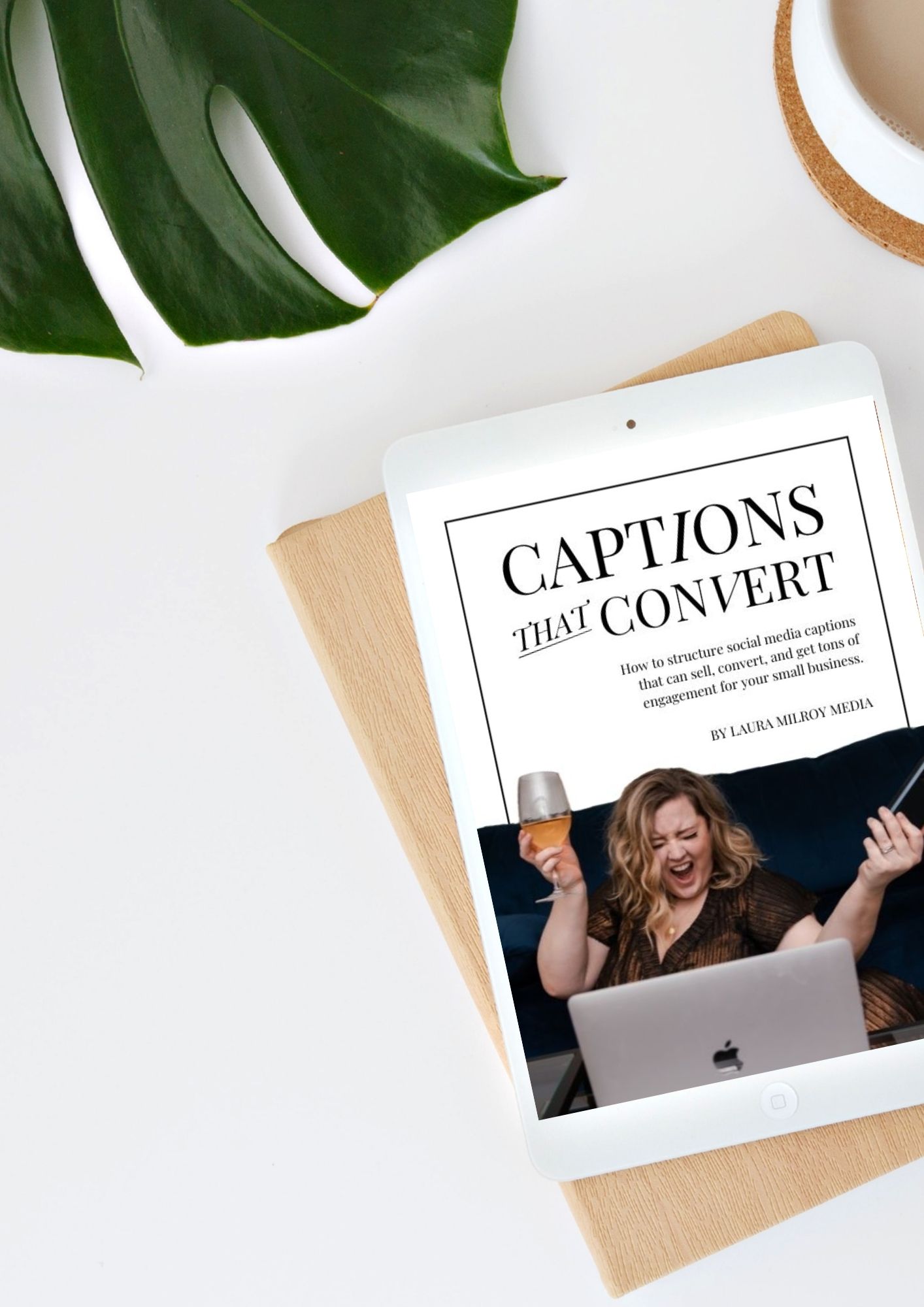What is a Common Issue with Social Media Marketing Plans?
Picture this: You’ve spent hours crafting a social media marketing plan – hashtags on point, content calendar locked and loaded, and you hit play. But just when you think you’ve got it all figured out, you find that no one is seeing your content, your DMs are stone cold and the few likes you get are from friends and family. What the hell just happened?
Buckle up, because we’re about to spill the tea on a common social media marketing problems that’s are keeping even the savviest small business owners on their toes.
Let’s peel back the layers on the common issues with social media marketing plans, how to fix and equipping you with the knowledge to conquer social media like the pro you are!
So, if you’re tired of scratching your head and wondering why your brilliant social media strategy isn’t yielding the results you deserve, stick around, because we’re about to decode the mystery and turn your social media game from “scroll away” to “take my credit card”. And you will never have to ask “what is a common issue with social media marketing plans?” again.
What Is a Social Media Marketing Plan?

A social media marketing plan is like the GPS for your brand’s journey through the wild, untamed jungle of the many social media platforms. It’s your master plan, your secret weapon, and your ticket to making consistent sales on social media.
It lays out everything from your brand’s goals and objectives to your content strategy, posting schedule, and even how you’ll measure your triumphs (or total flops).
A good social media marketing plan outlines your target audience, and what kinds of content to reach them, all while keeping your brand’s personality and values front and center. It’s where you whip up your hashtag magic, craft witty captions, and ensure your visuals are creating the brand experience that will help you make sales.
What are the Most Common Issues with Social Media Marketing Plans?
Before we get into the most common issue with social media marketing plans, let’s be clear; most of you don’t have one. When I first start working with a small business client, I will ask for their strategy and plan and get a convoluted answer that includes a half baked posting schedule and a brand colour palette.
If this is you- no judgement. Being a small business owner is tough and the pressure to be on all the social media platforms is overwhelming. But if you want your content to create consistent sales for your small business, you need to take this shit seriously.

Not Having Clear Goals and Objectives
When I ask small businesses what their social media goals are, most of the time I get something like “5,000 followers” and struggle not to roll my eyes into oblivion.
If you were an influencer, this would be a smart goal for your social media. But you’re a business. You are here to make money. More followers might help you do that but you would be surprised at how few followers you need to hit your income goals.
I have seen social media accounts with tens of thousands of followers make next to no money and accounts with less than 1,000 followers hit 6 figures and beyond.
You have to know what your real goal is. Not something you think you should be striving towards. And that will be different for every business. Maybe it’s reaching $10,000 a month in sales, or maybe it’s just having your social media account make passive sales so you don’t have to post every day. Every small business is different.
Not Having a Content Strategy
A posting schedule is not the same as content strategy. You can’t just say that you are posting 3 videos and 2 carousels every week and call it a day.
You need content that meets your audience where they are in their buyers journey. And it’s pretty damn rare that your audience will all be at the same place in their buyers journey at the same time so, you need to create a multi-dimensional content strategy that hits them at these different points.
From introducing them to your account to showcasing the results or experience that you offer, your content strategy needs to be well-rounded and holistic.
Ignoring Analytics
Not enough of you do social media reports and it shows.
The data is something that so many small business owners shy away from and it really does a disservice to your marketing strategy. If you don’t know what results your content is driving, how can you know what to create for your business?
You don’t have to be scared of the data. They are just numbers. But those numbers each tell a story about how your content is being received by your potential customers.
Knowing your numbers can help inform what kind of content to create and make creating a social media marketing plan so much easier. And you need one for each of the social media platforms to know how your content performs on each one.
Not Utilizing Ads
I don’t think all small businesses need ads. Especially if your funnel hasn’t proven to be profitable. However, if you have a funnel that converts to sales automatically and you just need to get more people into it, ads are an incredible way to scale your business.
Not Responding to Customer Questions and Comments
I don’t care how big your account is, there is no excuse for not responding to customers questions and comments.
Your audience assumes that you business machine is too big for you to get back to them quickly if they have a question. So, they take to your social media platforms to speak to someone. It’s an extension of your customer service experience.
If someone was in your store and spoke to you, would you stare them blank in the face and say nothing? Absolutely not. So, don’t do it on social media. Small businesses must respond to all questions and comments on your content.
Not only will it help them decide whether or not to purchase from you, but frequently asked questions can also be a source for creating more content. If you answer their questions in content form, you don’t have to field emails left and right.
Not Creating Different Content For Different Platforms
Not every social media platform is the same. Each app has their own do’s and don’ts, as well as trends and goals.
For example, it would be hard to get an Instagram audience to watch a 20 minute video but it’s the norm on Youtube. Make sure you do your research on each social media platform before you start to post so you understand the best practices of each one.
However, the social media platforms now host different forms of content on each one. So, there is an opportunity to repost content from one platform to another in order to get more reach out of each piece of content. You don’t want to be doing more work than you have to. You are a small business owner, you need to be smart with your time.
Not Aiming At The Right Target Audience
I cannot overemphasize the importance of truly knowing your audience. It’s not merely a suggestion; it’s a prerequisite for success.
Your audience isn’t an abstract concept; they are the lifeblood of your business. Their needs determine the tone, content, timing, and even the social media platform choices that will resonate most effectively.
Ignorance about your audience is a choice, not a necessity. By diligently researching your target audience you arm yourself with the knowledge necessary to craft content that resonates, builds trust, and drives engagement.
So, embrace this research as the cornerstone of your social media strategy, and watch how much more effective it makes your strategy.
Using the Wrong Hashtags
I’m tired of hearing that hashtags are dead. Do you really think Meta would invest millions into a platform feature they aren’t using? But they definitely changed the way they use them. Instead of being for growth, they are, instead for categorization.
Right now, less people are searching per hashtag and instead relying on their explore pages to deliver the goods they want to see.
This is the hashtag model I am using for my clients:
- 3-5 hashtags very specific to the content topic (make sure these keywords are being used in the content, audio, text overlays, and reel cover)
- 3-5 hashtags to the audience I am trying to target
- 3-5 hashtags based on my industry
- 3-5 hashtags based on the problem I solve or result I generate
Don’t worry about using too many hashtags. I haven’t noticed much difference between posting 12 hashtags to 30. The more relevant to the content, the better.
Not Using the Right Tools
Social media is a dynamic realm where timing, data, and insights can make or break your strategy. Without the proper tools, you’re essentially navigating in the dark.
The right tools can be invaluable; helping you schedule posts, track engagement, analyze audience behaviour, and uncover trends.
Here are some tools that I love using for social media:
- Later scheduling software
- Jasper AI writing
- Canva for graphics and brand materials
- CapCut for easy TikTok trends
- InShot for Reel and Tik Tok editing
- Lightroom for photo editing
- Tailwind for Pinterest scheduling
Equipping yourself with the right tools that empower you to make data-driven decisions, streamline your efforts, and ultimately, secure your place in the digital spotlight and is a necessary business expense for growing and scaling your small business.

Common Questions about Issues with Social Media Marketing Plans
What is the problem in social media advertising?
The main issue with social media advertising is that most small business owners lack the experience to use it.
Social media advertising is a skillset. One that requires experience, education and a lot of trial and error. Not only do you need to learn the advertising platforms themselves, but how to target your ideal audience within that platform.
If you don’t know what you’re doing in social media advertising, you may as well be throwing away money.
What is one of the biggest drawbacks to social media marketing?
The biggest drawback to social media marketing is how much content you need to produce to stay competitive on the social media platforms. Small businesses used to be able to post a photo 3 times a week to stay at the forefront of their audience’s mind, but these days you need to create multiple video posts a day to reach the same amount of people.
What are the challenges of advertising and marketing in using social media?
With the amount of content that needs to be produced to stay competitive, the challenge of advertising and marketing using social media is being able to create high-quality, creative, unique, and brand-focused at this volume. It can feel like you are a content creation machine instead of a business owner.
This is why I created Content 365 which gives you over a year’s worth of content prompts that are strategically positioned to speak to your audience during the different phases of their buyers journey. Just choose your phase and pick any prompt to create custom content directed at your audience. And the best news is that it’s only $17.
Final Thoughts
Small businesses often face hurdles that can seem daunting. However, armed with knowledge, strategy, and the determination to adapt, these obstacles can be transformed into a sustainable social media marketing plan.
By staying vigilant, keeping an open ear to your audience, and embracing the ever-evolving social media landscape, you can craft a marketing plan that not only addresses these challenges but propels your small business to new heights.
So, go forth with confidence, knowing that each setback is a lesson learned, and with each lesson, you inch closer to your social media success. And you will never ask “what is a common issue with social media marketing plans?” again.





